This was odd because I rode my bike all the time and had recently set the Guinness World Record for the longest distance cycled on a rickshaw. That had involved pedalling a huge, iron tricycle 1,000 miles from Scotland to London. As such, cycling up a hill, even a Cornish one, should have been fine.
When evening came, for some unknown reason, I could not face camping. Normally, I viewed camping as an opportunity, not a hardship. I loved nothing more than sleeping on top of a hill beneath the stars, but that night, I could not bring myself to do it. I was almost scared of it and Laura eventually had to find us a hotel.
We started on our bikes again the following day, but when we reached a town, I told Laura that I could not cycle any further and needed to sit down. She went off to get me some food (knowing that hunger was often the source of my problems), and by the time she got back, I was sitting on the floor with my head in my hands, crying.
I prided myself on never giving up. I was constantly looking for challenges and always driving myself harder. In Oman, for example, I used to ride a loop of the local oil compound every morning before breakfast and cycled so hard that when I slumped over my bike after achieving a personal best, passers-by would stop and ask if I was OK.
But that had started to feel futile. What was the point of riding my bike in circles, just to beat my own time? And what was the point of riding a bike across Cornwall? Why bother riding a bike at all?
Those feelings had been building for several months. Years of working at home, on my own, had been taking a toll. I often had no human interaction for days at a time and I had not been making a lot of money either, which, combined with the recent loss of a key client, ate away at my self-esteem.
These issues all came to a head in Cornwall, and the only response I could muster was to sit on the floor, crying.
‘What’s wrong, love?’ Laura asked when she came back from the shop.
‘I don’t know,’ I replied, ‘but I need to go home.’
*****
The doctor told me that I had depression. I was expecting that but pressed him on what was physically wrong with me.
OK, but why am I so tired all the time? Why can’t I run or cycle anymore?’
‘You don’t understand,’ he said. ‘That’s the depression too.’
I tried to pretend that this would not affect our plan to cycle around the world.
‘I’ll be alright once we get going,’ I said.
For years, I had been looking forward to this trip. I was not willing to accept that this was an illness that would prohibit me from disappearing on my bike for a year. I just convinced myself that everything was still on track for our departure.
But the evidence was in front of me. As well as having no will to exercise, I became scared of social interactions. I would dwell on the slightest negative comments for days and, eventually, just avoided talking to people. It got to the point where I felt the need to physically hide. Laura came into our bedroom one day to find me curled up in a ball behind our bed, with my eyes clamped shut and my fingers rammed into my ears. I felt completely overwhelmed and needed to shut the world away.
This odd defence mechanism grew into a habit. It became so normal that I even hid behind the bed when my parents came to visit, and sometimes Laura would have to bring my dinner to eat on the floor, curled up in the corner of our bedroom. A year earlier, I had crossed a desert, run an ultramarathon and broken a world record. Now I was reduced to hiding under beds.
Still, I could not let myself believe that anything would get in the way of our big trip. It was the one thing that I was holding on to and I was not yet ready to let it go. I insisted that I would be fine, and we pressed ahead with planning our ride around the world. But when Laura tried to hand in her notice at work, she was crying so much that her boss suggested she take a little longer to think about it. She knew that I was not in a fit state to go travelling and, slowly, she helped me realise that myself.

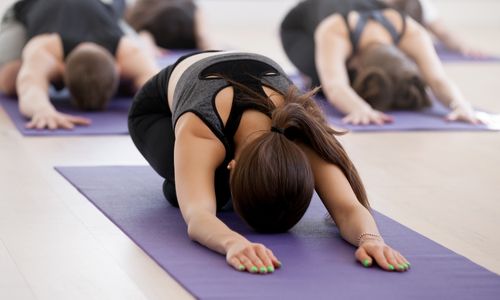

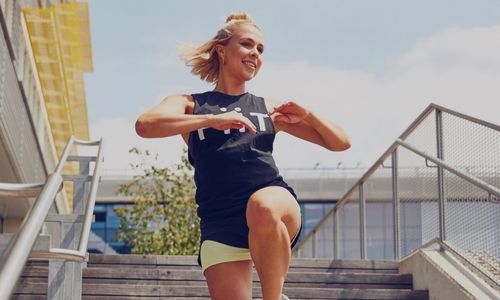



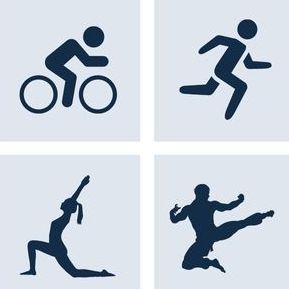



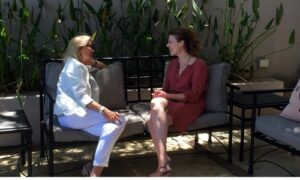

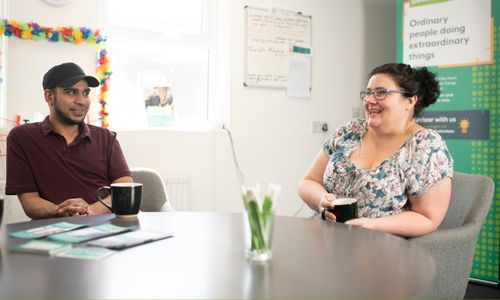








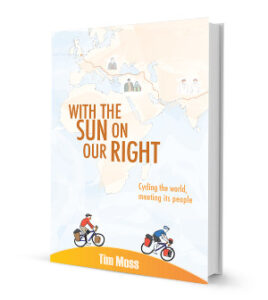
 It’s easy to portray a certain version of yourself through social media. In my case, I just show the adventurous side and I do that to encourage others to undertake adventures themselves.
It’s easy to portray a certain version of yourself through social media. In my case, I just show the adventurous side and I do that to encourage others to undertake adventures themselves.

